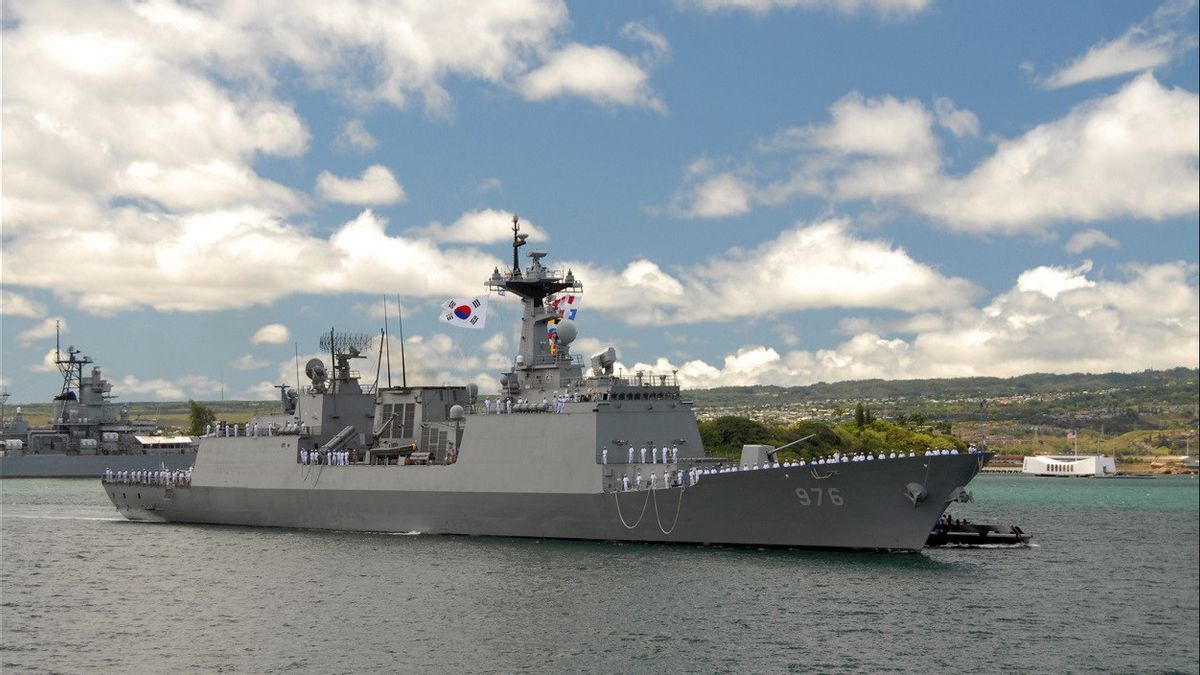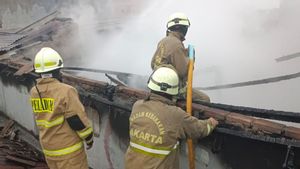JAKARTA - The number of elite South Korean Navy (AL) troops from the anti-piracy unit Cheonghae who were infected with COVID-19, while on board the destroyer ROKS Munmu the Great (DDH 976) has increased.
Citing the Korea Times, the new test results found 24 more cases of infection, bringing the total number of infections on Friday, July 23, to 271. However, a member of the elite force dismissed any disciplinary violations that caused the infection to spread.
A total of 247 of the 301 members of the anti-piracy unit Cheonghae who were on board the destroyer ROKS Munmu the Great (DDH 976), were declared infected with COVID-19 and had to end their operations in African waters, to be evacuated to South Korea.
A member of the unit who became infected with COVID-19 on Friday dismissed speculation that some of his colleagues slipped off the ship as they docked at a port in Africa to reload logistics, causing the COVID-19 outbreak.
Military and health authorities are working to determine the exact route of infection, based on the fact the unit reported the first individual showing cold symptoms, one day after the ship left a local port in Africa on July 1. Previously, the ship docked on June 28.

"I think it's impossible for the sailors to leave the ship and stay ashore (given the situation and the rules)," said a member of the Cheonghae unit.
"We thought at first that the infection was from the goods that were loaded onto the ship," he continued. But health authorities say such odds are quite low.
While loading supplies, a civilian boarded the warship, but that person, as well as members of Cheonghae's unit, were wearing protective gear, officials said.
The South Korean military has come under fire for its poor initial response to the outbreak. The officer who first showed symptoms turned out to be only given cold medicine, and his unit was late in testing for COVID-19, causing mass infections.
The government has also drawn criticism for not actively seeking ways to inject them. Neither of them had been vaccinated when they left South Korea in February, weeks before the country began its COVID-19 vaccination campaign.
Earlier in the day, local dailies JoongAng Ilbo and Chosun Ilbo, citing members of the unit, reported that some of the sailors had serious symptoms such as blood-tinged sputum, but that they were only prescribed Tylenol. Newspapers also quoted them as saying the destroyers were 'like hell' and they were abandoned by the state.
In response to this incident, South Korea's Ministry of Defense launched an audit of the Joint Chiefs of Staff, Navy and other relevant agencies on Thursday, July 22, to find out what caused this worst cluster of infections in the South Korean military.
The English, Chinese, Japanese, Arabic, and French versions are automatically generated by the AI. So there may still be inaccuracies in translating, please always see Indonesian as our main language. (system supported by DigitalSiber.id)













